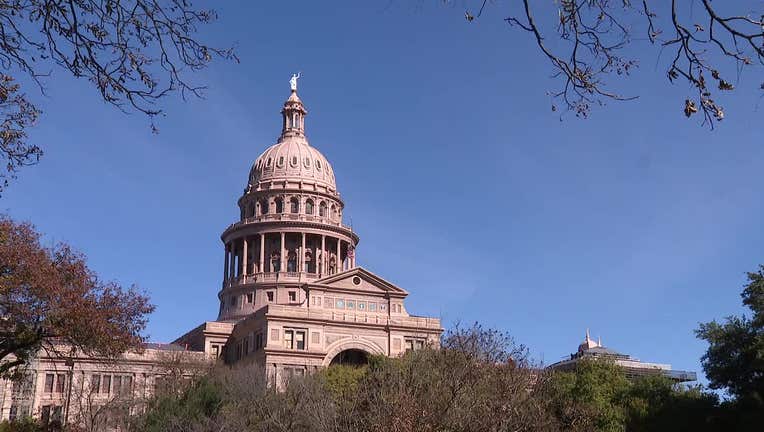Texas House passes major bail reforms to keep violent offenders jailed pretrial

AUSTIN, Texas - The Texas House on Tuesday gave final approval to a set of bills that will overhaul the state’s bail laws in an attempt to keep the state’s more dangerous people behind bars ahead of trial.
The House gave final approval to Senate Bill 664, Senate Bill 40 and Senate Bill 9 on Tuesday, moving ahead on one of Gov. Greg Abbott’s legislative priorities this session.
Senate Joint Resolution 5
The passages come one day after the House approved adding a constitutional amendment that would require judges to automatically deny bail for violent crimes like murder, rape or human trafficking, "unless there is clear and convincing evidence that the defendant will appear in court and not endanger the community."
Judges who release violent criminals under the new system would be required to explain the decision in writing. Prosecutors would be able to challenge the judges’ bail decisions.
The amendment will be put on ballots in November for a public vote.
Senate Bill 40
Passing on a 113-30 vote, Senate Bill 40 would prevent municipalities from using taxpayer dollars to bail defendants out of jail.
The bill helps ensure that taxpayer funds are used for public safety expenses, like law enforcement, state prosecutors and jail operations.
What they're saying:
Critics of the bill argue that it’s not needed as there is no evidence that public funds have been used to pay nonprofit bail organizations in the state.
Supporters say the bill will create a legal boundary to prevent it from happening in the state.
Senate Bill 9
Senate Bill 9 would prevent a judge from granting a cashless personal bond for certain offenses.
Under the bill, the state could appeal bail decisions if prosecutors felt the amount was insufficient. The rule would keep the defendant in jail for up to 20 days while the appeal is considered.
Senate Joint Resolution 1
On Monday, the House failed to reach the two-thirds vote required to pass Senate Joint Resolution 1.
The resolution would call for a constitutional amendment that would deny bail to undocumented migrants who commit violent crimes.
The House will hold a third vote on the resolution Tuesday.
Texas bail laws
Bond reform has been a priority for Abbott.
Currently, only capital murder suspects are exempt from bonds.
Why you should care:
Because bail is written into the Texas Constitution, it requires a constitutional amendment to alter. That requires a two-thirds vote in both the Texas House and Senate.
Bail reform was one of seven emergency items laid out by the governor earlier this year.
Under the Texas constitution, bail is a right for almost everyone arrested. The exceptions are people charged with capital murder, some people charged with certain repeat felonies or certain instances where bail has been violated in the past.
What is bail?
Dig deeper:
Bail is the amount of money a defendant must pay to be released from jail. The system is used to incentivize the accused to appear for court hearings. The bond, if paid in full by the accused, is refundable if they attend all hearings.
Those that can’t afford to pay the full amount can go through a bail bond company that usually requires a nonrefundable payment of 10% of the total amount. In exchange, the bail bond company guarantees the rest of the amount if the defendant doesn’t appear in court.
Other times, a judge can release a defendant on a personal recognizance bond that does not require any money, on the promise the defendant will appear for hearings.
The Source: Information on the bail reform bills comes from the Texas Legislature and comments made on the House floor. Backstory on Gov. Abbott's bail reform push comes from previous FOX reporting. Backstory on Texas bail laws comes from the Texas Constitution. Bail definitions come from the American Bar Association.

